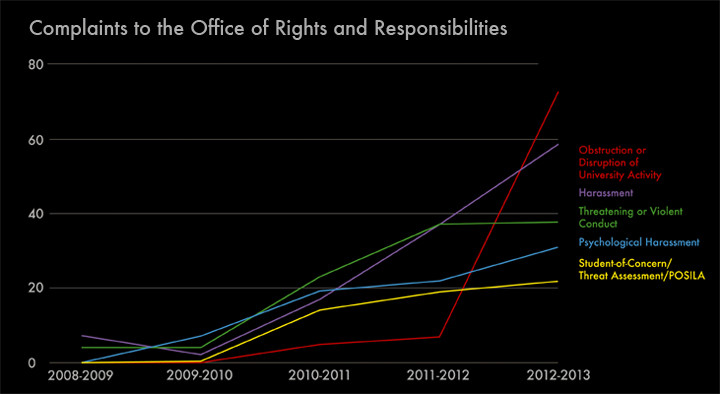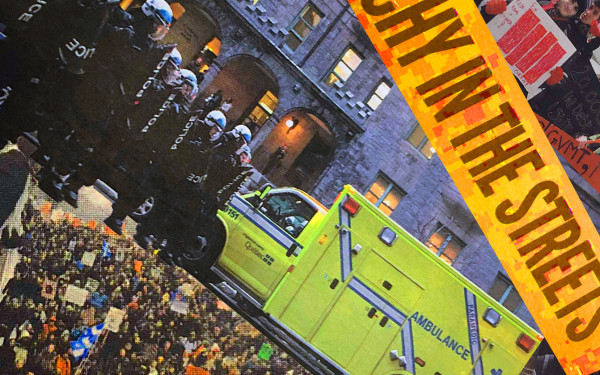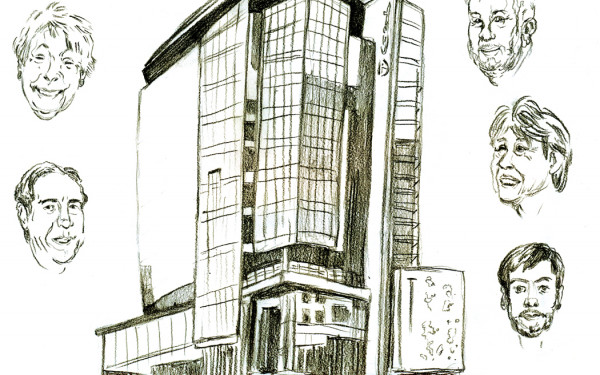Record Number of Complaints Against Concordia Students in 2012-2013
Complaints Related to Alleged Disruption of University Activities during Student Strike
Quebec’s 2012 student strike movement led to a record-breaking number of formal complaints against Concordia University students in the 2012-2013 academic year.
The annual report from Concordia’s Office of Rights and Responsibilities reveals that the university saw a surge in formal complaints due to strike activity against former premier Jean Charest’s move to raise university tuition fees.
“The Office and the university as a whole faced several challenges in dealing with conduct issues related to the student protest movement,” reads the report.
“While respecting the freedom of students to express their views, it was the expectation that protest activities would not disrupt the functioning of the university as provided by the Code of Rights and Responsibilities.”
The Strike at Concordia
The Office of Rights and Responsibilities advises on conflicts related to individual behaviour on campus and administers the university’s Code of Rights and Responsibilities. In any given year, it fields between 15 and 20 formal cases.
In the 2012-2013 academic year, however, it brought in 82 formal complaints. The university and security personnel filed 58 formal complaints against students due to activity during the student strike.
The 58 cases were offences related to Code 29G, which deals with “obstruction or disruption of teaching, research, administration, study, student disciplinary procedures or other university activity.”
The complaints were filed against 25 students over 15 different incidents on campus. Some students faced as many as seven different complaints.
Trevor Smith, who was an undergraduate student and VP Finance of the Geography Undergraduate Student Society at the time, was charged in June 2012 under Code 29G.
“I think I was more insulted that I was charged,” Smith told The Link. “I was doing the best I could to diffuse situations but I guess that was not the view that the university had.”
Smith maintains that he acted within the limits of his department’s strike mandate.
“The strike was so much bigger than Concordia,” Smith said. “We were in solidarity. We had the mandate voted at the general assembly.”
Smith’s alleged misconduct took place at the beginning of the student strike movement in March 2012. The Concordia Student Union held a week-long strike, while individual departments held their own strikes in solidarity with other Quebec post-secondary institutions.
The complaints related to March and April 2012 only formalized after the 2011-2012 academic year ended on May 31. The carryover resulted in a rise in complaints at Concordia over the last two academic years.
The administration informed 26 students through letters in June 2012 that they were facing charges related to infractions of Code 29G. Concordia President Alan Shepard withdrew those charges on Sept. 18, 2012.
However, three students still faced charges related to the student strike that were filed by individual members at Concordia and not the administration or security.
The report noted that one student respondent graduated during the formal process, causing the charge to dissolve.
As a recommendation, the Office of Rights and Responsibilities suggests reviewing “student respondents who (perhaps strategically) request a hearing postponement as registered students and then graduate before the formal process can be concluded.”
Terry Wilkings—one of 12 undergraduate students who sit on the Senate, the university’s senior academic body—said this could be problematic.
“There’s inference that students are strategically postponing hearings,” said Wilkings, who is also an advocate at the CSU Advocacy Centre. “I’m not sure how they will deal with [this] ‘delaying’ tactic but there’s also potential of abuse.”
Lack of Student Input
The Office of Rights and Responsibilities’ director and senior advisor, Louise J. Schiller, was absent when the 2012-2013 report was presented to the university’s Senate and had been the year before as well.
“We get to say remarks on a document that is already produced,” said Wilkings. “She was not available to respond to questions or concerns about the annual report.”
Similar comments were made about the 2011-2012 report by Smith—now a graduate student, an arts and science director for the Graduate Students’ Association, and president of the Geography, Planning and Environment Students Association.
“There was a lot missing,” said Smith. “I am sure there is a lot that the office didn’t know […] was happening and it’s like looking at strictly the upper administration’s view of the strike.”
Smith added that there was very little student input on the reports that deal with a time of student upheaval and that he would like a recommendation on how security personnel should conduct themselves.






_600_375_s_c1.png)
